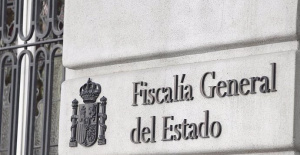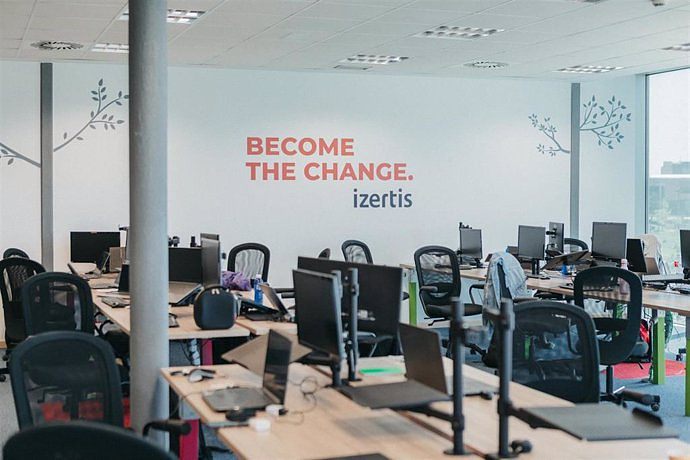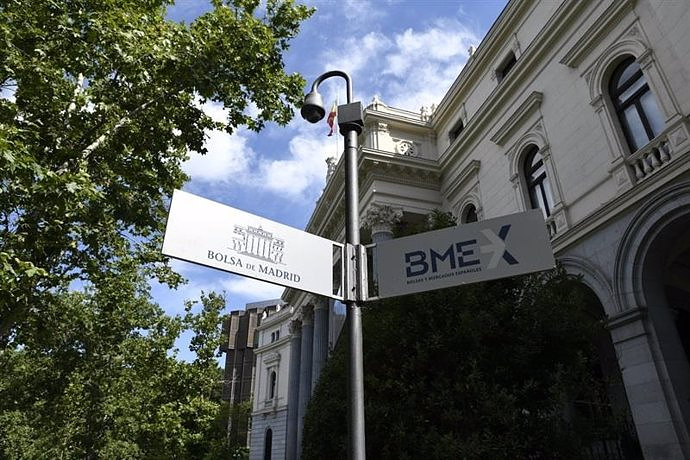MADRID, 25 May. (EUROPA PRESS) -
Credit Suisse considers that this is a good time to enter fixed income, although the firm prefers credit to sovereign debt, as explained by the head of fixed income and currencies, Ignacio Díez, in a meeting with the media this Wednesday.
The entity considers that inflation-linked bonds continue to make sense in the portfolio, at least until the second half, when the firm will begin to reduce its positions.
Díez explained that inflation is still high, so it makes sense to keep this asset despite the moderation in recent weeks. Credit Suisse also sees value in short-term investment-grade credit denominated in dollars.
The expectation for the 10-year US nominal rate is 3.4% twelve months ahead, a level for which the reduction of the balance sheet and a more restrictive policy by central banks will be key
"In Europe, the photo is totally different," Diez stressed. The firm does not see value in German sovereign debt or in that of peripheral countries, due to the ECB's withdrawal of stimuli from the second half of the year.
This movement puts pressure especially on peripheral debt, as pointed out by the head of fixed income and currencies. On the other hand, Díez expects the normalization of the primary market to help stabilize the credit market in Europe.
Among Credit Suisse's recommendations, corporate hybrid bonds stand out, for which they expect "very positive" returns, although it is necessary to be very selective in the issuers.
Díez added that in the currency market, the dollar continues to strengthen in the face of rate hikes being carried out by the US Federal Reserve (Fed).
In equities, Credit Suisse recommends underweighting human capital-intensive sectors and overvalued growth stocks, while remaining neutral in stable consumer and overweight energy, financials, companies that benefit from inflation and tax plans, and defensive technology. .
The head of equities, Patricia López del Río, explained this Wednesday in a meeting with the media that the market is establishing great nervousness, which is why she invites investors to look more at the medium or long term and not so much at short.
“We reiterate that patience in the market leads us to better returns in the medium term,” he pointed out, despite factors that influence this downward trend in the market, such as the confinements in China, the escalation of geopolitical tensions and the fear of stagflation.
However, corporate profits have remained at a "reasonably good" level in the first quarter in both Europe and the United States.
In this context, investors have opted for sectors where there is a high dividend yield and for securities of a more 'value' nature, while they have sold what has had growth and high valuations.
Currently, the European indices are already below average levels in Europe, with "much more reasonable" valuations and that in some cases have corrected the excesses.
However, the main indicator of the Spanish stock market, the Ibex 35, is being favored by the situation and the return to leisure and tourism could act as a catalyst to recover previous levels. López del Río also considers that the selective comes from very low levels and that his progress has not ended.
Emerging markets have also been hit hard by the declines, especially China, but in the long run they are at "pretty low valuation" levels.
The general director of Credit Suisse in Spain, Gabriel Ximénez de Embún, pointed out during his speech that the forecast for global growth is 3.3% and stressed that although growth will be lower than expected, "it is solid " and a recession is not expected in the next twelve months.
Ximénez de Embún has argued that the current situation of families and companies is positive, as is that of the labor market.
For Spain, the growth forecast for this year increases to 4.4% compared to the 2.8% forecast for the Eurozone, as the country will benefit from tourism, the rate hike and its better exposure to Russian gas, in addition to the potential of its gasification and renewable plants.
China, for its part, will grow around 5.3% and will have lower levels of inflation, standing at 2.1%.
Spain's CPI will rise to 8% this year and the Eurozone's will stand at 7%, while that of the United States will be 7.6%.

 Exploring Cardano: Inner Workings and Advantages of this Cryptocurrency
Exploring Cardano: Inner Workings and Advantages of this Cryptocurrency Seville.- Economy.- Innova.- STSA inaugurates its new painting and sealing hangar in San Pablo, for 18 million
Seville.- Economy.- Innova.- STSA inaugurates its new painting and sealing hangar in San Pablo, for 18 million Innova.- More than 300 volunteers join the Andalucía Compromiso Digital network in one month to facilitate access to ICT
Innova.- More than 300 volunteers join the Andalucía Compromiso Digital network in one month to facilitate access to ICT Innova.-AMP.- Ayesa acquires 51% of Sadiel, which will create new technological engineering products and expand markets
Innova.-AMP.- Ayesa acquires 51% of Sadiel, which will create new technological engineering products and expand markets CCAA denounce the lack of a "clear" state policy on immigration and demand more funding
CCAA denounce the lack of a "clear" state policy on immigration and demand more funding The fiscal leadership endorses the decision of the 'number two' of the Prosecutor's Office to ask to archive the complaint of Ayuso's partner
The fiscal leadership endorses the decision of the 'number two' of the Prosecutor's Office to ask to archive the complaint of Ayuso's partner Sánchez will not be able to dissolve the Cortes before May 30 but can submit to a question of confidence
Sánchez will not be able to dissolve the Cortes before May 30 but can submit to a question of confidence Full letter in which Pedro Sánchez announces a reflection on his continuity in the presidency of the Government
Full letter in which Pedro Sánchez announces a reflection on his continuity in the presidency of the Government How Blockchain in being used to shape the future
How Blockchain in being used to shape the future Not just BTC and ETH: Here Are Some More Interesting Coins Worth Focusing on
Not just BTC and ETH: Here Are Some More Interesting Coins Worth Focusing on Retrópolis brings the golden age of video games and computing to the UPV
Retrópolis brings the golden age of video games and computing to the UPV Looking for video games that value the neighborhoods of Valencia
Looking for video games that value the neighborhoods of Valencia UPV researchers improve the efficiency of air conditioning systems using a geothermal heat pump
UPV researchers improve the efficiency of air conditioning systems using a geothermal heat pump València is committed to citiverse and smart tourism to be "the reference technological hub of the Mediterranean"
València is committed to citiverse and smart tourism to be "the reference technological hub of the Mediterranean" A million people demonstrate in France against Macron's pension reform
A million people demonstrate in France against Macron's pension reform Russia launches several missiles against "critical infrastructure" in the city of Zaporizhia
Russia launches several missiles against "critical infrastructure" in the city of Zaporizhia A "procession" remembers the dead of the Calabria shipwreck as bodies continue to wash up on the shore
A "procession" remembers the dead of the Calabria shipwreck as bodies continue to wash up on the shore Prison sentences handed down for three prominent Hong Kong pro-democracy activists
Prison sentences handed down for three prominent Hong Kong pro-democracy activists ETH continues to leave trading platforms, Ethereum balance on exchanges lowest in 3 years
ETH continues to leave trading platforms, Ethereum balance on exchanges lowest in 3 years Investors invest $450 million in Consensys, Ethereum incubator now valued at $7 billion
Investors invest $450 million in Consensys, Ethereum incubator now valued at $7 billion Alchemy Integrates Ethereum L2 Product Starknet to Enhance Web3 Scalability at a Price 100x Lower Than L1 Fees
Alchemy Integrates Ethereum L2 Product Starknet to Enhance Web3 Scalability at a Price 100x Lower Than L1 Fees Mining Report: Bitcoin's Electricity Consumption Declines by 25% in Q1 2022
Mining Report: Bitcoin's Electricity Consumption Declines by 25% in Q1 2022 Oil-to-Bitcoin Mining Firm Crusoe Energy Systems Raised $505 Million
Oil-to-Bitcoin Mining Firm Crusoe Energy Systems Raised $505 Million Microbt reveals the latest Bitcoin mining rigs -- Machines produce up to 126 TH/s with custom 5nm chip design
Microbt reveals the latest Bitcoin mining rigs -- Machines produce up to 126 TH/s with custom 5nm chip design Bitcoin's Mining Difficulty Hits a Lifetime High, With More Than 90% of BTC Supply Issued
Bitcoin's Mining Difficulty Hits a Lifetime High, With More Than 90% of BTC Supply Issued The Biggest Movers are Near, EOS, and RUNE during Friday's Selloff
The Biggest Movers are Near, EOS, and RUNE during Friday's Selloff Global Markets Spooked by a Hawkish Fed and Covid, Stocks and Crypto Gain After Musk Buys Twitter
Global Markets Spooked by a Hawkish Fed and Covid, Stocks and Crypto Gain After Musk Buys Twitter Bitso to offset carbon emissions from the Trading Platform's ERC20, ETH, and BTC Transactions
Bitso to offset carbon emissions from the Trading Platform's ERC20, ETH, and BTC Transactions Draftkings Announces 2022 College Hoops NFT Selection for March Madness
Draftkings Announces 2022 College Hoops NFT Selection for March Madness



























